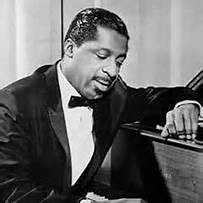The song “Misty” is a timeless classic, instantly recognizable and deeply evocative. Immortalized in the film Play Misty for Me, the melody has resonated across generations. But beyond its captivating tune, the Misty Song Lyrics themselves tell a poignant story of love and vulnerability. This article delves into the fascinating history of “Misty,” exploring its origins as an instrumental piece and its evolution into a lyrical masterpiece, with a special focus on the diverse interpretations of its misty song lyrics.
From Jazz Instrumental to Lyrical Ballad: The Genesis of Misty
“Misty” began its life not as a vocal song, but as a purely instrumental composition in 1954. Created by the self-taught jazz piano virtuoso Erroll Garner, born in Pittsburgh in 1923, the original “Misty” showcased Garner’s exceptional talent for melody and improvisation. Despite never learning to read music, Garner’s innate musicality shone through, crafting a tune that was both sophisticated and emotionally resonant.
 Erroll Garner at the piano
Erroll Garner at the piano
The instrumental version of “Misty” immediately captured hearts with its romantic and dreamy atmosphere. It wasn’t until 1959 that lyrics were added, transforming the instrumental piece into the vocal ballad we know and love. Lyricist Johnny Burke penned the words, perfectly complementing Garner’s melody and giving voice to the emotions the music evoked.
Johnny Mathis and the Romantic Misty Song Lyrics
Johnny Mathis, known as the “Master of The Love Ballad,” was the ideal artist to introduce the lyrical version of “Misty” to the world. In 1959, Mathis recorded the song, and it became a signature hit for him. His smooth, romantic delivery perfectly captured the tender sentiment of the misty song lyrics.
The lyrics themselves paint a picture of being utterly captivated by love. Lines like “Look at me, I’m as helpless as a kitten up a tree” and “I’m misty, holding your hand” beautifully express the vulnerability and dreamy intoxication of being in love. The misty song lyrics evoke a sense of being lost in love, walking “on a cloud,” and feeling overwhelmed by emotion. Mathis’s rendition emphasized the ballad’s romantic core, solidifying “Misty” as a timeless love song.
 Johnny Mathis in a classic pose
Johnny Mathis in a classic pose
Ray Stevens’ Country-Pop Take on Misty Lyrics
While Johnny Mathis’s version is perhaps the most iconic, “Misty” has been interpreted by numerous artists across various genres. Ray Stevens, known for his comedic novelty songs, surprised audiences in 1975 with a country-pop rendition of “Misty.” This version offered a distinct contrast to the ballad style, injecting an upbeat tempo and country instrumentation into the familiar melody and misty song lyrics.
Ray Stevens’ Version: A Chart-Topping Departure
Stevens’ version of “Misty” was a significant departure from his usual comedic fare. Born in Georgia and deeply rooted in Nashville’s music scene, Stevens brought a country sensibility to the jazz standard. His rendition became a commercial success, even earning a Grammy Award for Best Arrangement.
 Ray Stevens performing on stage
Ray Stevens performing on stage
Lyrical Interpretation and Popularity
Despite the stylistic shift, the core of the misty song lyrics remained intact in Ray Stevens’ version. The lyrics about being “helpless as a kitten up a tree” and “misty and too much in love” still resonated, even within the upbeat country arrangement. This demonstrates the enduring power of the misty song lyrics to transcend genre and connect with listeners on an emotional level. Stevens’ success with “Misty” highlighted the song’s versatility and its ability to appeal to a broad audience.
Misty Song Lyrics: A Timeless Tale of Love and Vulnerability
Regardless of the musical arrangement, the misty song lyrics of “Misty” continue to captivate. They articulate the universal experience of falling deeply in love, capturing the feelings of helplessness, wonder, and being completely immersed in emotion. The repeated phrase “I’m misty” itself becomes a powerful metaphor for this state of romantic enchantment.
The lyrics are simple yet profound, using vivid imagery to convey complex emotions. The “thousand violins” and the “sound of your hello” illustrate the overwhelming sensory experience of love. The vulnerability expressed in lines like “Don’t ya notice how hopelessly I’m lost? That’s why I’m followin’ you” adds depth and sincerity to the song.
Conclusion
“Misty” is more than just a beautiful melody; it is a song enriched by its evocative misty song lyrics. From Erroll Garner’s instrumental origins to Johnny Mathis’s romantic ballad and Ray Stevens’ country-pop twist, the song has proven its adaptability and timeless appeal. The misty song lyrics penned by Johnny Burke have given voice to the universal experience of being deeply in love, ensuring that “Misty” will continue to enchant listeners for generations to come. Whether you prefer the smooth jazz instrumental, the classic ballad, or the upbeat country version, the heart of “Misty” lies in its ability to capture the delicate and powerful emotions described in its unforgettable misty song lyrics.

